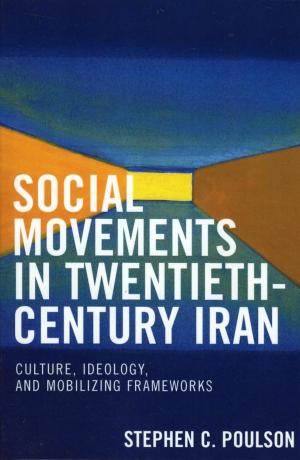Youth and the Cuban Revolution
Youth Culture and Politics in 1960s Cuba
Fiction & Literature, Literary Theory & Criticism, Caribbean & West Indian, Nonfiction, Social & Cultural Studies, Political Science, International| Author: | Anne Luke | ISBN: | 9781498532075 |
| Publisher: | Lexington Books | Publication: | October 15, 2018 |
| Imprint: | Lexington Books | Language: | English |
| Author: | Anne Luke |
| ISBN: | 9781498532075 |
| Publisher: | Lexington Books |
| Publication: | October 15, 2018 |
| Imprint: | Lexington Books |
| Language: | English |
Youth and the Cuban Revolution: Youth Culture and Politics in 1960s Cuba is a new history of the first decade of the Cuban Revolution, exploring how youth came to play such an important role in the 1960s on this Caribbean island. Certainly, youth culture and politics worldwide were in the ascendant in that decade, but in this pioneering and thought-provoking work Anne Luke explains how the unique circumstances of the newly developing socialist revolution in Cuba created an ethos of youth which becomes one of the factors that explains how and why the Cuban Revolution survives to this day. By examining how youth was constructed and constituted within revolutionary discourse, policy, and the lived experience of young Cubans in the 1960s, Luke examines the conflicted (but ultimately successful) development of a revolutionary youth culture. She explores the fault lines along which the notion of youth was created—between the internal and the external, between discourse and the everyday, between politics and culture.
Luke looks at how in the first decade of the Cuban Revolution a young leadership—Fidel, Raúl and Che—were complemented by a group of new protagonists from Cuba’s young generation. These could be literacy teachers, party members, militia members, teachers, singers, poets… all aiming to define and shape the Cuban Revolution. Together young Cubans took part in defining what it meant to be young, socialist and Cuban in this effervescent decade. The picture that emerges is one in which neither youth politics nor youth culture can alone help to explain the first decade of the Revolution; rather through the sometimes conflicted intersection of both there emerged a generation constantly to be renewed—a youth in Revolution.
Youth and the Cuban Revolution: Youth Culture and Politics in 1960s Cuba is a new history of the first decade of the Cuban Revolution, exploring how youth came to play such an important role in the 1960s on this Caribbean island. Certainly, youth culture and politics worldwide were in the ascendant in that decade, but in this pioneering and thought-provoking work Anne Luke explains how the unique circumstances of the newly developing socialist revolution in Cuba created an ethos of youth which becomes one of the factors that explains how and why the Cuban Revolution survives to this day. By examining how youth was constructed and constituted within revolutionary discourse, policy, and the lived experience of young Cubans in the 1960s, Luke examines the conflicted (but ultimately successful) development of a revolutionary youth culture. She explores the fault lines along which the notion of youth was created—between the internal and the external, between discourse and the everyday, between politics and culture.
Luke looks at how in the first decade of the Cuban Revolution a young leadership—Fidel, Raúl and Che—were complemented by a group of new protagonists from Cuba’s young generation. These could be literacy teachers, party members, militia members, teachers, singers, poets… all aiming to define and shape the Cuban Revolution. Together young Cubans took part in defining what it meant to be young, socialist and Cuban in this effervescent decade. The picture that emerges is one in which neither youth politics nor youth culture can alone help to explain the first decade of the Revolution; rather through the sometimes conflicted intersection of both there emerged a generation constantly to be renewed—a youth in Revolution.















